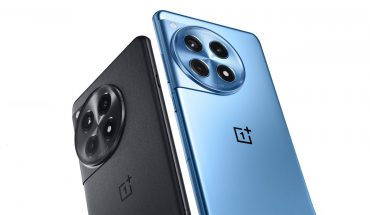 Starting today, Bell will officially put an end to Solo Mobile by not activating any new customers under its longtime subsidiary budget brand. The move was long overdue, given Bell’s stake in Virgin Mobile, but Rogers, also with two sub-brands, should probably put an end to Chatr Wireless once and for all.
Starting today, Bell will officially put an end to Solo Mobile by not activating any new customers under its longtime subsidiary budget brand. The move was long overdue, given Bell’s stake in Virgin Mobile, but Rogers, also with two sub-brands, should probably put an end to Chatr Wireless once and for all.
Bell’s move to kill Solo Mobile started long ago, and should be viewed in the context of the effect Wind Mobile and Mobilicity have had so far in attracting low-paying customers. Their plans are aggressive and they arguably each offer far better long distance and roaming packages than the Big 3 combined. Rogers initially launched Chatr as an obvious attempt to interdict any customers the new guys could attract. By offering cheap phones with cheap plans, they could wrest away some of the budget and low-paying customers the carrier had all but ignored previously.
Isn’t that what Fido was supposed to be? It offers some good deals for those on a budget, but it becomes abundantly clear why Rogers didn’t position the brand along the lines of Chatr. Fido offers the iPhone and other premium smartphones, and aside from its popular City Fido plan, you won’t find the same prices you do on Chatr. What a coincidence that Chatr’s network coverage is pretty much exactly in line with what Wind and Mobilicity offer.
In looking at some of what Chatr offers, and comparing it to Fido, there is not that much of a difference. The “City Fido” plan offers unlimited calling and texting for $30 per month in a citywide zone. That’s pretty much the same as the $35 plan on Chatr, except that it includes Canada-wide talk and text. Couldn’t Rogers just offer this same package through Fido? Customers would probably appreciate it.
Now that Bell is excising one useless brand, it begs the question on why Rogers needs two subsidiary brands? Are there that many customers in Canada that one isn’t enough? Sure, it can be about “offering consumers choice”, but how about offering a good deal for less?
What comes off as particularly egregious in all this is that the big incumbents opted to compete with new entrants, not with their own existing brands, but with entirely new entities that could protect the exorbitant pricing on the incumbent services. Why can’t an “all-in” plan be applied to a BlackBerry? Or an iPhone or Android handset for that matter? True competition would see such things happen, but so long as the marketplace continues to pay high fees, change will come slowly, or at least until the new entrants can expand more aggressively.
Rogers has made no mention of closing Chatr permanently, so this is all speculation on our part, but it’s not far-fetched to suggest that the three-brand strategy is a waste of time and resources that only further undermines the credibility of the big carriers.
Rogers doesn’t disclose how many subscribers it has in its two sub-brands because it lumps them all together in its quarterly reports, just like Bell does. It’s also not clear how well the new entrants are doing. Being private companies, they aren’t required to declare or reveal any reports, but Mobilicity had recently announced in February that it was “the fastest growing new wireless entrant”, even beating out one of the three incumbents in Q4 2011.
Mobilicity had announced in June 2011 that it had reached 250,000 subscribers since the service launched in May 2010. By now, that number is almost certainly above 300,000.
Wind Mobile stated that it had 425,000 subscribers as late as January, while Public Mobile is likely over 200,000 by now. Public Mobile’s numbers are interesting because the carrier only serves two markets — Toronto and Montreal.
Putting all these numbers together amounts to almost a million subscribers. How many Chatr or Solo have (even Telus’s Koodo) would make for an interesting comparison. Assuming the new entrants win some valuable spectrum at the next government auction, things could look very different if they’re able to compete on a more even playing field.
For the moment, however, it seems Chatr serves a prospective customer base that is already being served elsewhere. Perhaps if Bell takes some of the budget plans from Solo and applies them to Virgin, there will be a precedent set that Rogers could do with Chatr and Fido.
Or nothing of the sort could happen, and competition will crawl along at a snail’s pace until Chatr inevitably gets cannibalized.



